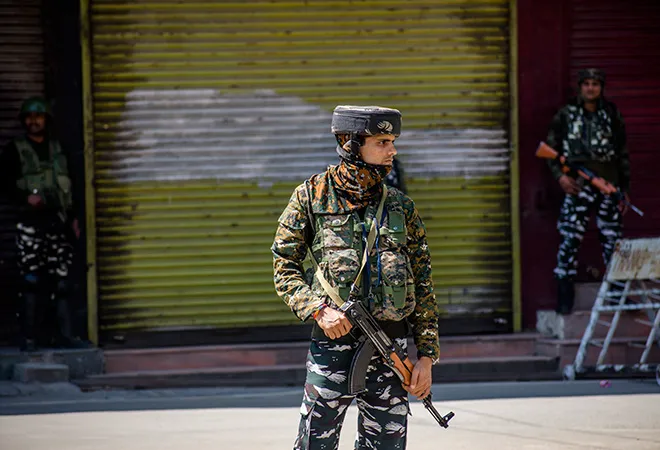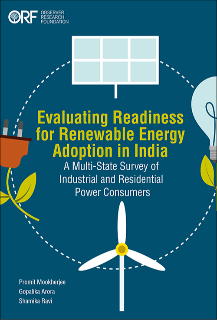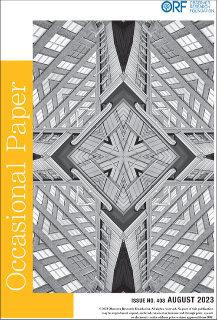
The two decisions on Jammu and Kashmir taken by New Delhi in August 2019 turned out to be not that august after all. As more than half a year has passed since they were voted through, it is now apparent that New Delhi’s new Kashmir policy — and the way the government handled its outcomes — caused not only new domestic challenges but also international ones, although the latter are of smaller scale.
As soon as these changes were rushed through, my initial opinion was that one of them — the abrogation of Article 370 — was fair at the basic level of equality between states and citizens of the Indian Union, but the other — the withdrawal of the statehood status — was unfair at the same basic level. Only the separation of Ladakh stood justified by itself, and was the only of the reforms in this package that had a legal precedent.
But since the flag of equality was held high, how can one justify taking the statehood status away?
As for international implications, I assumed that the changes will not affect India’s image and global position. But as time passed, both of these opinions have partially changed — into more negative ones. Internally, the government has evoked the ideal of equality while doing away with Article 370, arguing that this will bring both the state of Jammu and Kashmir and its citizens on par with other states and citizens of India. Had this been its only move, I would have considered it justified (and that was my first feeling). But since the flag of equality was held high, how can one justify taking the statehood status away? Instead of just terminating what was considered a special legal status of one state, to level it with that of others, New Delhi took a step further and actually pushed Jammu and Kashmir further down, below the regular status enjoyed by other states. In the end, a new legal inequality has taken place of an old one.
What made matters much worse and complex was not the legal decisions themselves but the high-handedness that accompanied with them and which we witness till today. With each passing month, it was more difficult to justify such measures as the shutdown of Internet services in Kashmir and the detention of its political leaders. It is true that leading politicians like Mehbooba Mufti and Abdullah’s (both and son) united to oppose the August changes just before they took place (as voiced in their Gupkar Declaration), but neither this could serve as a sound, moral basis for their detention nor does it explain why they are kept secluded at the time of writing, when they have next to no power to make New Delhi withdraw its decisions (not that they had it on the 4-5 August 2019). While the legal basis of their detention is the Public Safety Act, this piece of legislation has been problematic already in the past. Moreover, ironically, this act is applicable only to Jammu and Kashmir, and thus can be treated as one of the symbols of the region’s legal separation from the rest of India — while it was exactly this legal separation that the current government seemingly wanted to do away with.
While the legal basis of their detention is the Public Safety Act, this piece of legislation has been problematic already in the past.
A similar question may be raised about the partial limiting of communication in Kashmir — if it was meant to augment security in a challenging transitory phase, what is the rationale of keeping it till this day, since the government claims that the situation has become much more stable? It must be stressed that the removal of the statehood status is presented as a temporary measure, to be withdrawn once stability will return to the region (as declared by Home Minister Amit Shah). But New Delhi’s prolonged limitation of Internet services and detention of political leaders adds up to the general sense of uncertainty. Since, there is no telling when such temporary measures will be withdrawn, it is harder to believe in the sincerity of government’s promise that the taking away of the statehood status will also prove temporary.
As for the international implications, New Delhi’s recent Kashmir policy has hurt India’s international reputation but not its real position. Pakistan is sure to criticise New Delhi with reference to Kashmir no matter what India does. The critical voices raised by such leaders as the Prime Minister of Malaysia and President of Turkey were most probably calculated at tapping the political potential of Muslim identity (mostly domestically). India had thus no way to avoid such statements. But at the same these were not much than rhetoric and hence do not pose a real threat for New Delhi. It is Modi government’s communication with countries neutral or friendly to India in regions like Europe that could have been better. It is here that some of the lost points were own goals.
In recent months, New Delhi has inconsistently wavered between attempting to influence the international debate on Kashmir and treating it as a purely domestic issue. Given New Delhi’s standpoint that Jammu and Kashmir is an entirely Indian territory (a claim that is both legally and historically justified), and given its disenchantment with how the UN dealt with the Kashmir dispute in the more distant past, it is completely expected of India to present the issue as a purely domestic one. But since this is case, why was there a need to invite foreign lawmakers and envoys to Kashmir?
Given New Delhi’s standpoint that Jammu and Kashmir is an entirely Indian territory (a claim that is both legally and historically justified), and given its disenchantment with how the UN dealt with the Kashmir dispute in the more distant past, it is completely expected of India to present the issue as a purely domestic one.
It is here that avoidable mistakes have been made. The October 2019 visit of EU parliamentarians was one of these. Here, it must be admitted, mistakes were made on nearly each step – but also on both sides, not only the Indian one. The visit was unofficial on both sides, apparently not formally organised by the Indian government and not mandated by the EU. This was a yet another case of wavering — was it a part of a formal diplomatic outreach or not? The lawmakers, on their side, have committed the mistake of accepting the invitation, stepping out of the line of both their countries’ and EU’s diplomacy (and I say this with full responsibility, I’am aware that the group included politicians from my own country, Poland).
But, while the visits by some of the envoys did take place later, they seemingly did not make the general, external perception of the state of things any better. The same state of wavering and uncertainty persists. If the region is a domestic issue, why is it seemingly easier for a foreign diplomat than an Indian politician (or at least some of them) to enter Kashmir? If New Delhi wants to show that Kashmir has returned to normalcy and is open to a debate on its state of affairs, why is it cherry-picking the people to be invited? Either it is understood to be a domestic issue of a still volatile region and New Delhi considers it prudent to keep it closed for now (both for unrestricted travel and kept away from international fora) or, if the situation has indeed improved as the government claimed, there is no need to restrict Internet services and select foreign invitees.
By and large, however, while the image of the Indian government has been hurt, its position in terms of realpolitik does not seem to be affected. After her January visit to India, US deputy secretary Alice Wells called for the detained Kashmiri leaders to be released in her official briefing back home. But this and few other diplomatic spats that occurred in between did not stop President Trump from announcing his visit to India. Nor, it seems, did these little jabs affect any major dialogue US-India framework so far.
At the same time, rather more importantly for New Delhi, France stood by India at the UNSC, helping to stop Pakistan’s attempts to raise the matter of Kashmir there.
As for France, easily India’s most important partner in Europe as of now, President Macron met Prime Minister Modi not long after the abrogation of Article 370, and rather carefully voiced concerns about respecting the rights of Kashmir’s civilians. At the same time, rather more importantly for New Delhi, France stood by India at the UNSC, helping to stop Pakistan’s attempts to raise the matter of Kashmir there.
While petitions by various groups of parties have been recently brought in the EU Parliament to vote both on CAA and Kashmir, these so far represent the opinions of various EU lawmakers, not the official standpoint of the Union as such (UE similarly avoided direct criticism of New Delhi in August 2019). That said, it is unlikely that any state that has vital economic or security-related interests at stake in its cooperation with New Delhi will let those be challenged by a larger diplomatic quarrel on Kashmir.
The BJP government has thus wavered on Kashmir in a number of ways. It wavered between presenting the situation as normal and yet keeping special security measures, between presenting it as a domestic issue and seeking endorsement of foreign politicians and diplomats, between unofficial and official means. In certain aspects, its high-handedness has been unjustified and the incoherence of its policies has made it look worse. But, in a long run, all of this is unlikely to cause major international troubles for India, not harder than the ones it already has to cope with. It is on the domestic front — and in relation with Pakistan — that crucial challenges and unsolved problems lay.
The views expressed above belong to the author(s). ORF research and analyses now available on Telegram! Click here to access our curated content — blogs, longforms and interviews.




 PREV
PREV


